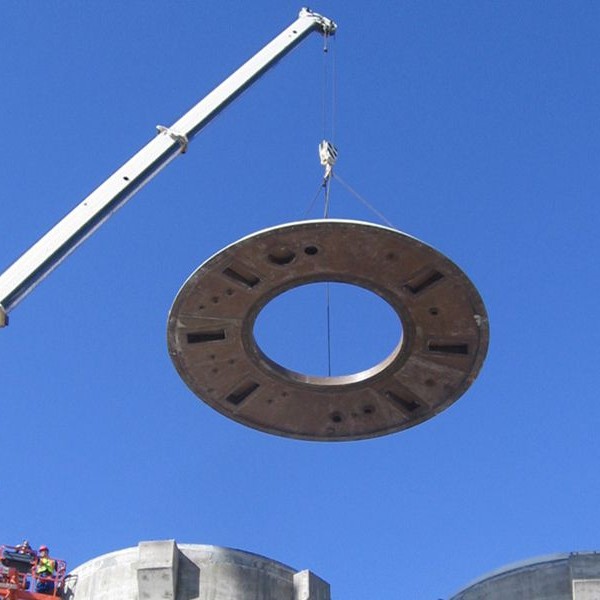
-
 Afrikaans
Afrikaans -
 Albanian
Albanian -
 Amharic
Amharic -
 Arabic
Arabic -
 Armenian
Armenian -
 Azerbaijani
Azerbaijani -
 Basque
Basque -
 Belarusian
Belarusian -
 Bengali
Bengali -
 Bosnian
Bosnian -
 Bulgarian
Bulgarian -
 Catalan
Catalan -
 Cebuano
Cebuano -
 China
China -
 China (Taiwan)
China (Taiwan) -
 Corsican
Corsican -
 Croatian
Croatian -
 Czech
Czech -
 Danish
Danish -
 Dutch
Dutch -
 English
English -
 Esperanto
Esperanto -
 Estonian
Estonian -
 Finnish
Finnish -
 French
French -
 Frisian
Frisian -
 Galician
Galician -
 Georgian
Georgian -
 German
German -
 Greek
Greek -
 Gujarati
Gujarati -
 Haitian Creole
Haitian Creole -
 hausa
hausa -
 hawaiian
hawaiian -
 Hebrew
Hebrew -
 Hindi
Hindi -
 Miao
Miao -
 Hungarian
Hungarian -
 Icelandic
Icelandic -
 igbo
igbo -
 Indonesian
Indonesian -
 irish
irish -
 Italian
Italian -
 Japanese
Japanese -
 Javanese
Javanese -
 Kannada
Kannada -
 kazakh
kazakh -
 Khmer
Khmer -
 Rwandese
Rwandese -
 Korean
Korean -
 Kurdish
Kurdish -
 Kyrgyz
Kyrgyz -
 Lao
Lao -
 Latin
Latin -
 Latvian
Latvian -
 Lithuanian
Lithuanian -
 Luxembourgish
Luxembourgish -
 Macedonian
Macedonian -
 Malgashi
Malgashi -
 Malay
Malay -
 Malayalam
Malayalam -
 Maltese
Maltese -
 Maori
Maori -
 Marathi
Marathi -
 Mongolian
Mongolian -
 Myanmar
Myanmar -
 Nepali
Nepali -
 Norwegian
Norwegian -
 Norwegian
Norwegian -
 Occitan
Occitan -
 Pashto
Pashto -
 Persian
Persian -
 Polish
Polish -
 Portuguese
Portuguese -
 Punjabi
Punjabi -
 Romanian
Romanian -
 Russian
Russian -
 Samoan
Samoan -
 Scottish Gaelic
Scottish Gaelic -
 Serbian
Serbian -
 Sesotho
Sesotho -
 Shona
Shona -
 Sindhi
Sindhi -
 Sinhala
Sinhala -
 Slovak
Slovak -
 Slovenian
Slovenian -
 Somali
Somali -
 Spanish
Spanish -
 Sundanese
Sundanese -
 Swahili
Swahili -
 Swedish
Swedish -
 Tagalog
Tagalog -
 Tajik
Tajik -
 Tamil
Tamil -
 Tatar
Tatar -
 Telugu
Telugu -
 Thai
Thai -
 Turkish
Turkish -
 Turkmen
Turkmen -
 Ukrainian
Ukrainian -
 Urdu
Urdu -
 Uighur
Uighur -
 Uzbek
Uzbek -
 Vietnamese
Vietnamese -
 Welsh
Welsh -
 Bantu
Bantu -
 Yiddish
Yiddish -
 Yoruba
Yoruba -
 Zulu
Zulu
CPVC FRP Pipes for Dependable Solutions in Industrial Applications
CPVC FRP Pipe A Reliable Choice for Industrial Applications
In the realm of industrial applications, the choice of piping materials plays a crucial role in ensuring the efficiency, safety, and longevity of operations. Among the various materials available, CPVC (Chlorinated Polyvinyl Chloride) FRP (Fiberglass Reinforced Plastic) pipe stands out as a reliable solution for diverse industrial needs.
Durability and Corrosion Resistance
One of the most prominent advantages of CPVC FRP pipes is their exceptional durability. These pipes are designed to withstand harsh environmental conditions and corrosive substances commonly found in industrial settings. Unlike traditional metal pipes, CPVC FRP pipes do not rust or corrode, which significantly extends their lifespan. This resistance to corrosion is particularly beneficial in industries such as chemical processing, where the transport of aggressive chemicals is routine.
Additionally, CPVC FRP pipes exhibit high impact resistance. This property is especially important in facilities where physical impacts can occur due to machinery or moving parts. The pipes can maintain their integrity even under challenging mechanical conditions, reducing the risk of leaks and breaks that can lead to costly downtime.
Temperature Tolerance
Industrial applications often operate under extreme temperature conditions, and CPVC FRP pipes are engineered to handle a wide range of temperatures. They maintain their strength and performance in both high and low-temperature environments, making them suitable for varied applications, from hot water systems to cold chemical transport. This versatility is a significant advantage for industries that require reliable piping solutions across multiple processes.
Lightweight and Easy to Install
cpvc frp pipe a reliable choice for industrial applications

Another benefit of CPVC FRP pipes is their lightweight nature compared to traditional piping materials, such as steel or iron. This characteristic simplifies the installation process, as the pipes are easier to handle and transport. Reduced weight also translates to lower installation costs, particularly in projects that require extensive piping networks. The ease of installation minimizes labor costs and accelerates project timelines, making CPVC FRP pipes an attractive option for businesses looking to enhance productivity.
Cost-Effectiveness
While the initial investment in CPVC FRP pipes may be slightly higher than that of conventional materials, their long-term cost-effectiveness is undeniable. The combination of durability, corrosion resistance, and low maintenance requirements leads to substantial savings over time. With fewer repairs and replacements necessary, industries can allocate their resources more efficiently, ultimately contributing to improved profit margins.
Environmental Sustainability
In today's environmentally conscious world, the sustainability of materials is a crucial consideration for industrial operations. CPVC FRP pipes are manufactured with a focus on environmental responsibility. They are recyclable and do not release harmful substances into the environment, aligning with the growing emphasis on green practices in industry. By choosing CPVC FRP pipes, companies can demonstrate their commitment to sustainability while benefiting from a superior piping solution.
Conclusion
In summary, CPVC FRP pipes present a reliable choice for industrial applications due to their durability, temperature tolerance, lightweight nature, cost-effectiveness, and environmental sustainability. As industries continue to seek advanced solutions to meet their operational demands, CPVC FRP pipes stand out as a forward-thinking choice that addresses both practical needs and sustainability goals. By investing in this innovative piping solution, companies can ensure the efficiency and reliability of their operations, paving the way for long-term success.
Latest news
-
Exploring the Benefits of Top Hammer Drifter Rods for Enhanced Drilling PerformanceNewsJun.10,2025
-
High-Precision Fiberglass Winding Machine for GRP/FRP Pipe Production – Reliable & Efficient SolutionsNewsJun.10,2025
-
FRP Pipes & Fittings for Shipbuilding - Corrosion-Resistant & LightweightNewsJun.09,2025
-
Premium FRP Flooring Solutions Durable & Slip-ResistantNewsJun.09,2025
-
Premium Fiberglass Rectangular Tanks Durable & Lightweight SolutionNewsJun.09,2025
-
Tapered Drill String Design Guide Durable Performance & UsesNewsJun.09,2025









